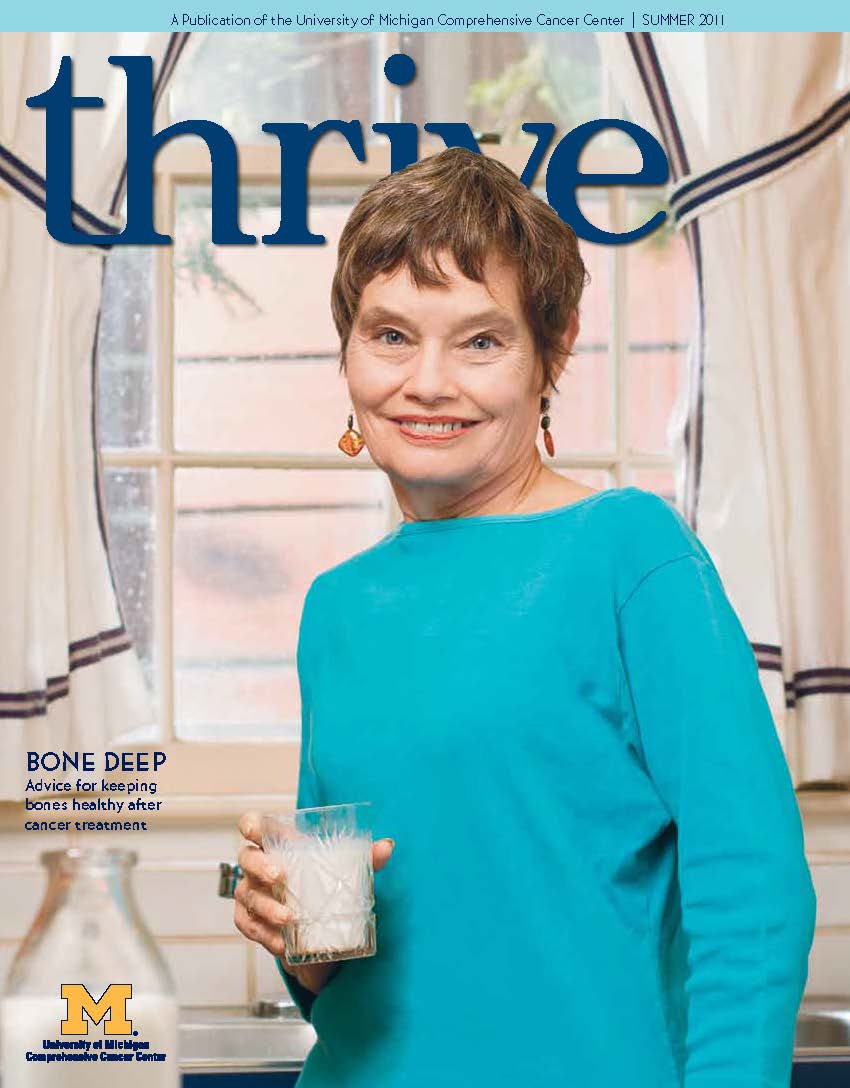Summer, 2011

Bone health may be of particular concern for cancer survivors. People with breast or prostate cancer who undergo treatments that block specific hormones may be at higher risk of thinning bones. Also, certain chemotherapy drugs used to treat these or other cancers may induce ovarian failure in younger women, causing bones to thin as a result of early menopause and estrogen deprivation. In addition, steroids may also accelerate bone loss in both men and women.
U-M pharmacists, doctors collaborate to ensure patients get drugs they need, despite shortages
Patient & Family Advisory Committee provides new opportunity for input
A cancer diagnosis often makes people re-evaluate their eating habits, inspiring many to incorporate more organically grown foods in their diets. Some people buy organic because of concerns about the environment, pesticides or animal welfare. Others perceive organic foods to be more nutritious. But considering the higher cost, is there any evidence that organically grown food offers more health benefits than conventionally grown food?
In 2007, the Institute of Medicine issued a report stating that every cancer patient should be evaluated for psychological distress. The director of the Rogel Cancer Center's PsychOncology Program said as many as 25% to 30% of people with cancer will have a psychological problem at some point during their care. The problems depend on the person and may include general anxiety or depression, personality issues or substance abuse.
Some laboratory studies suggest eating soy may increase breast cancer risk for some women, but other studies show eating soy from an early age may protect against breast cancer. So what's a woman to do?
